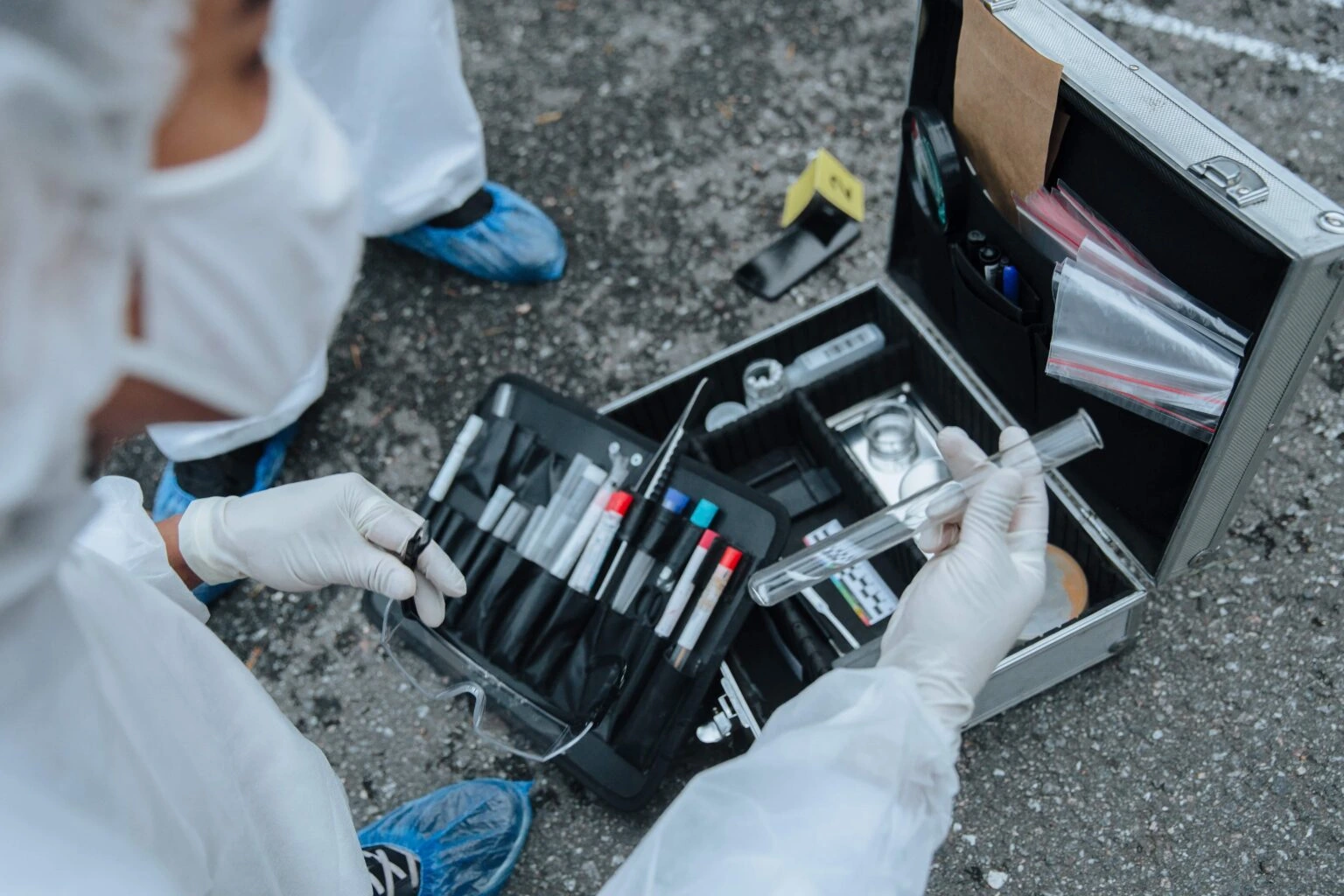Forensic Science: Investigating the Intricate World of Crime with a Criminal Justice Degree

Love puzzles? Obsessed with true crime? Intrigued by scientific investigation? Want to solve mysteries? If these describe you, you may be a good candidate for a degree in criminal justice, and you may especially enjoy the study of forensic science, which is the use of science in solving criminal cases. A field that is part of the larger criminal justice forensic science field involves blood testing, DNA testing, ballistics, electronic data recovery, and even handwriting analysis. Read on to learn more about the field and how a degree in criminal justice can be a good introduction.
What do students study in forensic science?
A course in forensic science will usually cover crime scene investigation as well as examination of evidence. Let’s dig into those a bit more.
Crime scene investigation
Crime scene investigation covers everything found at a crime scene that might be relevant to an investigation. Skills like measuring, collecting evidence without contaminating it, taking good photos and videos, and reconstructing crime scenes will generally be covered. There also might be instruction in ballistics or the science of tracking the paths of projectiles like bullets.
Examination of evidence
Once evidence has been removed from the crime scene and has gone through the proper chain of custody, the crime lab comes into play. A course in forensic science will introduce students to how forensic scientists analyze blood, body fluid, and tissue samples for evidence of poison or DNA matching and use teeth and fingerprints to identify victims positively.
What are some jobs in forensic science?
A wide range of jobs exist in forensic science, from entry-level to highly skilled. Here are a few options:
Forensic technician. Typically available to applicants with a bachelor’s in forensic science or criminal justice, forensic technician jobs involve collecting fingerprints or other evidence from a crime scene. Technicians may also assist in analyzing evidence under the supervision of a specialist.
Crime scene photographer. Leverage your passion for photography to solve crimes, where you will take careful, well-lit, and detailed photos of a crime scene to aid investigations.
Detective. If you choose to go the traditional law enforcement route, where your work will routinely involve forensic science, you might consider a career as a detective or special investigator.
Forensic pathologist. Usually trained as medical doctors, forensic pathologists determine when and how a victim was killed.
Forensic psychologist. Forensic psychiatrists work with clients to determine the psychological issues surrounding a crime.
Forensic toxicologist. If there are drugs or chemicals in a victim’s body, a forensic toxicologist will find them.
Can you do forensics with a criminal justice degree?
Yes, though depending on your career goals, you may need additional training. While you can usually qualify for technician jobs with a bachelor’s degree, for instance, a forensic pathologist usually requires a medical degree, and a forensic psychologist career requires a master’s or, in some cases, a Ph.D. Other specializations like toxicology may also require advanced degrees. However, your criminal justice degree can offer a solid educational foundation to build upon.
Are you considering a career in forensic science? A degree in criminal justice can help you get there, especially if it offers a solid grounding in forensics. At Lackawanna College, you can earn your associate’s degree in criminal justice by taking courses like CHM 110 (Forensic Science) and other coursework. You can enroll in our Police Academy Certification and graduate in two years with the certification and an associate’s degree. You’ll be ready to fight crime immediately.
Or, prepare yourself for even greater responsibility by enrolling in our Bachelor of Science in Criminal Justice program, where during your four-year sequence, you’ll take courses like CHM 110 (Forensic Science) and CJS 445 (Expert and Scientific Evidence).
Why not reach out and apply today? The admissions process is easy, and you can schedule a 15-minute enrollment call with an enrollment counselor or even set up a campus visit as you weigh your options. In a few short semesters, you could emerge with a working knowledge of criminal justice and forensic science, ready to take the next step toward your dream career.
